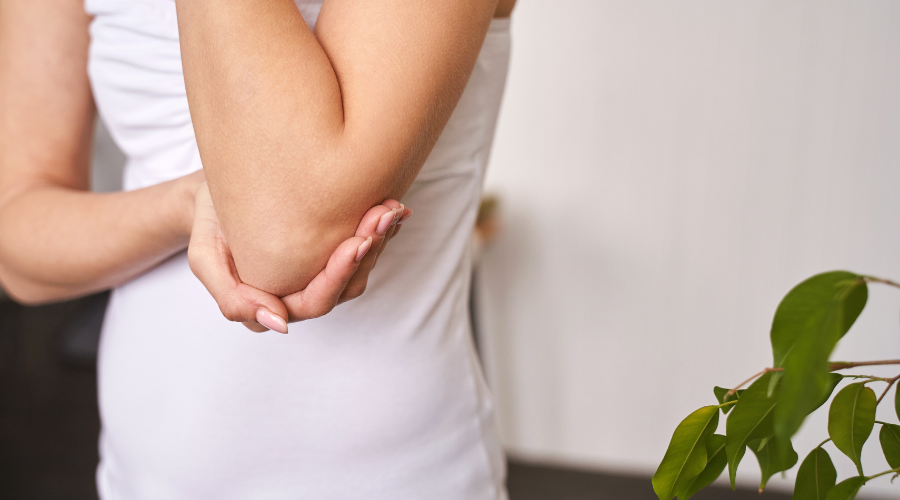How to keep your bones healthy during menopause

Estrogen protects your bones. When your estrogen levels drop during menopause, so does the bone protection. This means that women going through the menopause are more at risk of osteoporosis and weaker bones.
Osteoporosis is when the structure inside of your bones thins out and makes them more hollow and fragile. This means you are more likely to break a bone if you trip or fall.
Yet, there are things you can do to protect your bones as your estrogen levels fall. In fact, the earlier in life that you help protect your bones, the better. Your bone strength is determined by how you treat your bones throughout your life and often by how you’ve protected them when you are young. Think of it as a pension plan for your bones.
Calcium
We need a wide range of vitamins and minerals to keep our bones healthy. A diet rich in calcium and vitamins D is key to a strong, healthy skeleton.
Dairy foods such as milk and cheese are packed full of calcium. But did you know you can also find calcium in green leafy vegetables such as kale and cabbage? Soya beans and tofu are also a rich source of calcium, as are nuts and bread made from fortified flour.
This is why we need to keep a varied diet because no single food source gives our bodies everything it needs to thrive.
Making sure our plates are filled with plenty of colour is a good place to start. A good mix of carbohydrates, proteins, fruits, and vegetables in our meals will support our bones as well as our overall health.
Vitamin D
You also need vitamin D for healthy bones. Getting outside in the sun as often as we can (while wearing the right UV protection, of course), is a great way to absorb vitamin D. You can do this by sitting in the garden, taking a walk or just enjoying a cup of tea in the fresh air.
The more you get outside, the more you will absorb vitamin D for healthy bones.
Sustaining your vitamin D through the winter months when there is less sun can be done through a healthy diet. You can find vitamin D in food including cheese, eggs and fatty fish like tuna and mackerel. Other foods are fortified with vitamin D including soya milk, orange juice, and cereals.
Exercise
Strengthening our body will help protect our bones. Regular exercise will also help us keep our body weight healthy.
Low impact exercises such as walking, yoga, and pilates will all help support healthy bones. Taking part in groups and classes also helps boost your social life, too. Many parks in the UK run weekly 5km runs where you can walk, run or skip your way around at your own pace.
Bringing regular exercise into your life is a great way to reduce your risk of many illnesses, including osteoporosis. When you find something you enjoy, you are more likely to do it on a regular basis.